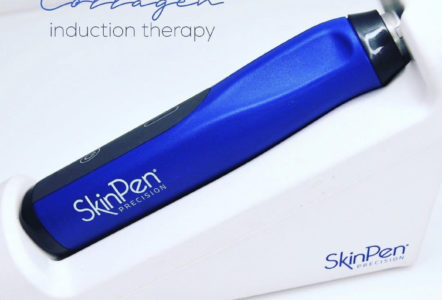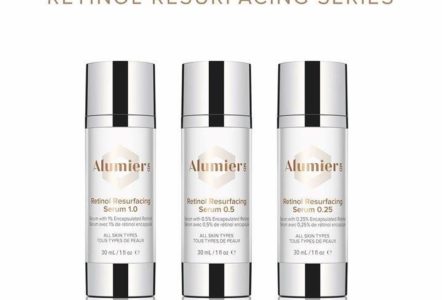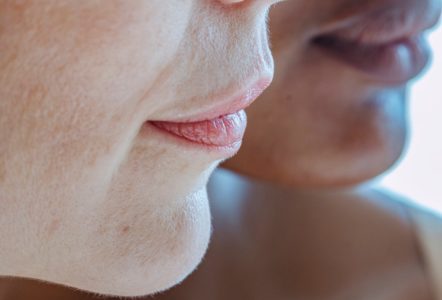FACT: Retinol is a clinically proven ingredient to prevent the signs of ageing.
Retinol is Vitamin A, this ingredient speeds up your cellular turnover when used. This will help to increase collagen production this will improve the appearance of fine lines and wrinkles. It can also help to improve the appearance of pigmentation such as age spots on the surface of the skin. It unclogs pores helping to improve blemish prone skin and will also improve the texture of the skin.
Contrary to belief Retinol will help to thicken the skin not make it thinner when used correctly. It should only be used at night time as exposure to UV light can cause reactions and sensitivity in the skin. It is also important to use a good quality broad spectrum sunscreen alongside your retinol to prevent further UV damage, sun exposure accelerates the ageing process, so it is counterproductive if you are using serums to prevent ageing.
Combine Retinol with peptides and you will be onto a winning formula in the fight against ageing.
But not all Retinol is the same and not all peptides are the same, this is where you need the knowledge to make an informed decision. We believe in providing our clients with the knowledge they need to be able to do just that.
The first big difference is between your shop or online bought products and a Medical Grade skincare obtained through a qualified professional aesthetician. Products bought in the shops/online are not able to use ingredients at clinical levels as they do not have a medical license to do so.
They also do not use the delivery systems such as liposomes to enable ingredients to get into the layers of the skin and reach their intended target. This means if they list Retinol or a derivative of Retinol, or ingredients such as peptides in their product it will be at a low level and usually fairly low on the list of ingredients meaning there is not a lot of it in the product.
The next point to consider is the Vitamin A substrate, all substrates need to convert to Retinoic Acid when applied to the skin. As they convert they effectively lose their strength. At the bottom of the table we have Retinol esters, Retinal Acetate and the Retinol Palmitate, these are all esters of retinol and have to convert up to 6 times to become Retinoic Acid. For example a 1% Retinol ester becomes a 0.000001% Retinoic Acid and a 1% Retinol Palmitate becomes a 0.0001% Retinoic Acid, so the actual strength is not what it seems when you purchase it.
Retinol is the entire Vitamin A molecule and has to convert less to become Retinoic Acid. This is what is used in our AlumierMD medical grade skincare. It is also micro-encapsulated which means that when it is applied to the skin it slowly releases over an 8 hour period whilst you sleep rather than being “dumped” on the skin. This can lead to less irritation on the skin, so even a sensitive skin can use the product effectively. Your AlumierMD professional will always give you exact advice on which strength of Retinol would be perfect for your skin type and exact advice on how to introduce it safely into your skin regime.
We also combine our Retinol with other ingredients; the powerful Matrixyl Synthe 6 a peptide naturally found in collagen and laminins which reduces the appearance of lines and wrinkles, Tetrapeptide 14 a redness relieving peptide, Sodium Hyaluronate which plumps the skin by drawing in water to hydrate, and Niacinamide vitamin B3 which increases free fatty acids and ceramides in the skin these keep the skins lipid barrier healthy. So this is not just a Retinol it os so much more than that!
As we start to age in our late 20’s it would be beneficial to actually start using Retinol as early as this. But if you haven’t started it by your 30’s you really should enquire about how to introduce it as soon as you can.
If you would like more information on how to introduce our Retinol into your skincare then contact us.




